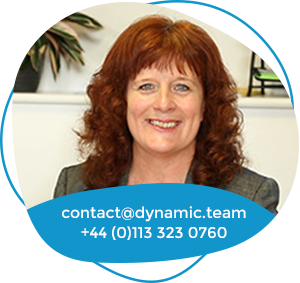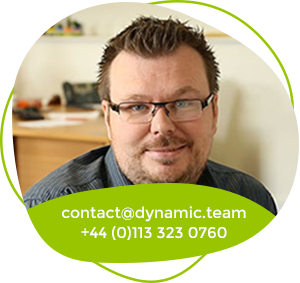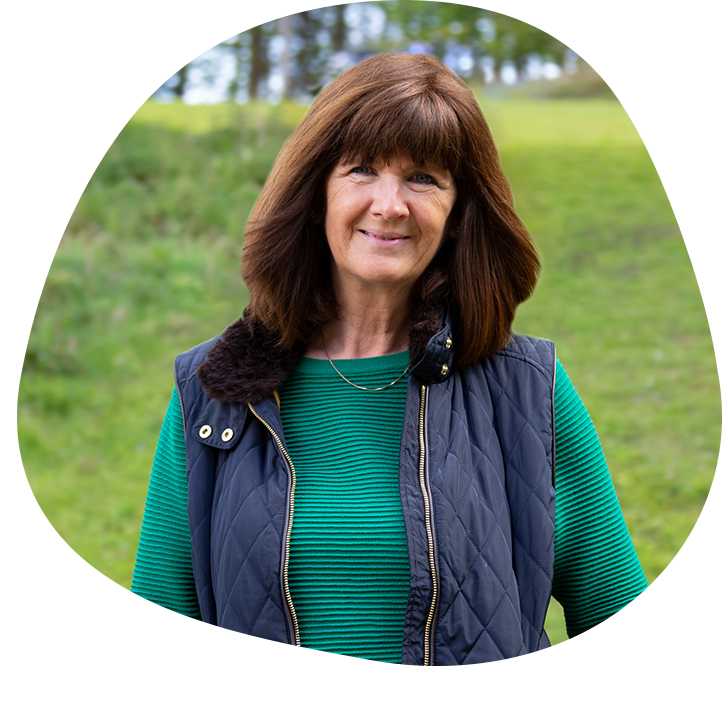
17 May 2021
Alison Hadfield
Raising awareness through digital learning; dementia
Digital learning can be a vital tool in raising awareness of important topics such as dementia. Alison discusses the symptoms, the signs and what we can do to look out for them—as well as how digital learning can play its part.
We all know what it’s like to forget or misplace something. Have you ever bumped into someone in the street and not been able to place them? Or walked into a room and realised that you don’t know why you went in there?
Ever struggled to find the word that you want to say but can’t? Even though it’s on the tip of your tongue?
Useful starting points
These situations are a useful starting point in understanding what it’s like to live with the symptoms of dementia.
Most of us will know of someone who is living with dementia – a relative, friend, colleague or neighbour. We often see reports in the media about famous people who have had a dementia diagnosis.
In the UK, there are around 850,000 people with dementia and by 2025, it’s estimated that this number will increase to 1 million.
Young-onset dementia
Dementia mainly affects people over the age of 65 (one in 14 people in this age group has dementia). However, over 40,000 people currently live in the UK with ‘young-onset’ dementia. That’s those people under 65 years of age. ‘Young-onset’ is also known as ‘early-onset’ or ‘working-age’ dementia and is the term preferred by many people with the condition.
These figures could, in reality, be higher. And that’s due to the difficulties diagnosing the illness, especially in young people.
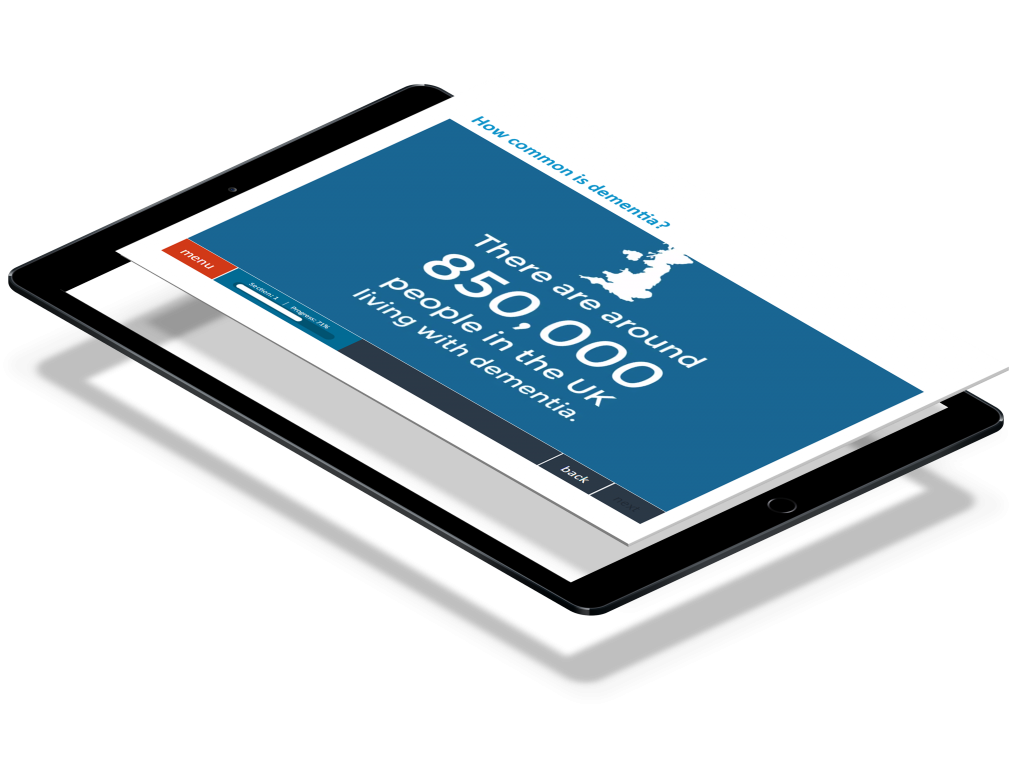

Joy was diagnosed with young-onset dementia at the age of 58. She says…
“…the symptoms and hurdles that a person with young-onset dementia experiences can be very different to an older person. We might still be at work; we might have children or parents we are caring for and the whole dynamics can be quite different. So my advice would be to find out as much as you can and to be open minded as to just what that individual needs. And I suppose the bottom line is listen… just listen to what the person has to say.”
Common misconceptions around dementia
Dementia is a condition that many are familiar with. Unfortunately, there can be stigma attached to it. And this often arises from people’s lack of knowledge or because they’re frightened by it.
There are also many misconceptions about dementia. For example, people see those living with dementia struggle to communicate effectively. And because of that they think it means they are not aware of what is happening around them. This is not necessarily the case. The part of the brain which deals with communication is separate to the area which deals with awareness. And that, sadly means some people living with dementia do have thoughts to communicate although they struggle to relay them.
It’s worth noting that dementia is not an inevitable consequence of getting older. However, it can affect anyone regardless of race or socio-economic background.

Understanding dementia
Dementia is a term given to a group of symptoms from certain diseases which affect the brain. Over 100 different types of dementia have been identified, all of which are progressive. This means that the functioning of the brain will deteriorate over time.
There are lots of different reasons that people might have difficulties with their memory and their functioning as they age. It might just be normal ageing. They might have a mood problem, such as depression or anxiety. Or, they might have a physical health problem which needs treating.
For some people, problems with memory, along with other factors, clearly indicate that something is not right. And ultimately this leads to a dementia diagnosis.


Types of dementia
Alzheimer’s disease is the most common form of dementia.
Other types of dementia include vascular disease, dementia with Lewy bodies and frontotemporal dementia.
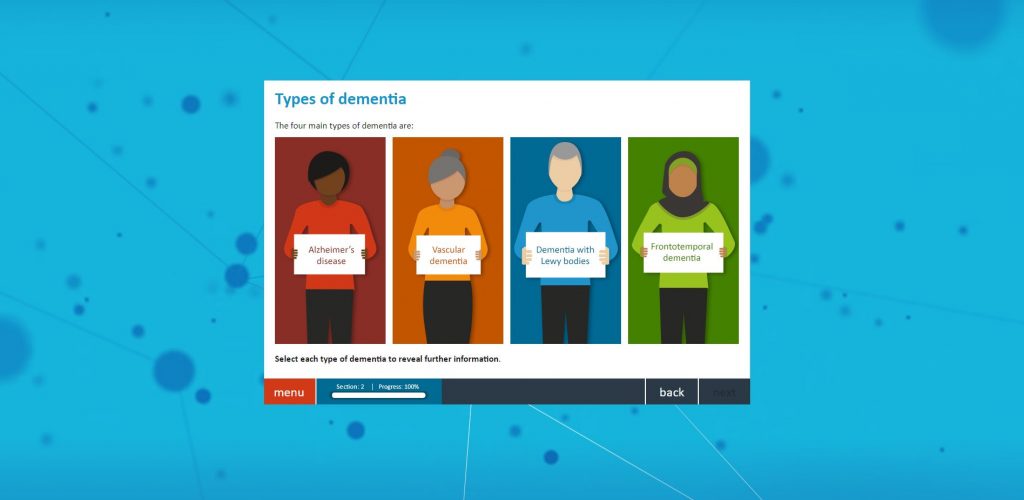
Dementia symptoms
The specific symptoms that someone with dementia experiences will depend on the parts of the brain that are damaged and the disease that is causing the dementia.
Alzheimer’s disease is thought to be caused by the abnormal build up of proteins in and around brain cells.
Someone with early Alzheimer’s disease may:
- forget about recent conversations or events.
- misplace items.
- forget the names of places and objects.
- have trouble thinking of the right word.
- ask questions repetitively.
- show poor judgement or find it harder to make decisions.
- become less flexible and more hesitant to try new things.
- show signs of mood changes, such as increasing anxiety or agitation, or periods of confusion.
A diagnosis can be overwhelming. But it’s important to know that many people living with dementia live fulfilling and happy lives, contributing to the welfare of their families and communities.

Why do we need to raise
awareness of dementia?
Raising awareness of dementia can help people recognise the early signs.
The more awareness is raised, the greater potential there is in terms of how we can help someone with this condition.
Visiting a family doctor is often the first step for people who are experiencing changes in thinking, movement or behaviour. However, health specialists, such as psychiatrists, geriatricians and neurologists, generally have the expertise needed to diagnose dementia.
By raising awareness about this condition, people will be diagnosed earlier, giving them more time to come to terms with future symptoms.
An early diagnosis offers those living with dementia the opportunity to discuss and prepare for the future and plan ahead. It offers access to advice and support and provides treatments that can mitigate symptoms and slow down the progress of the disease. Awareness also helps to educate families and carers to understand the different stages and what medication procedures to expect.
Without the research from organisations, such as Dementia UK and the Alzheimer’s Society, developments with helping the conditions wouldn’t be able to move forward.
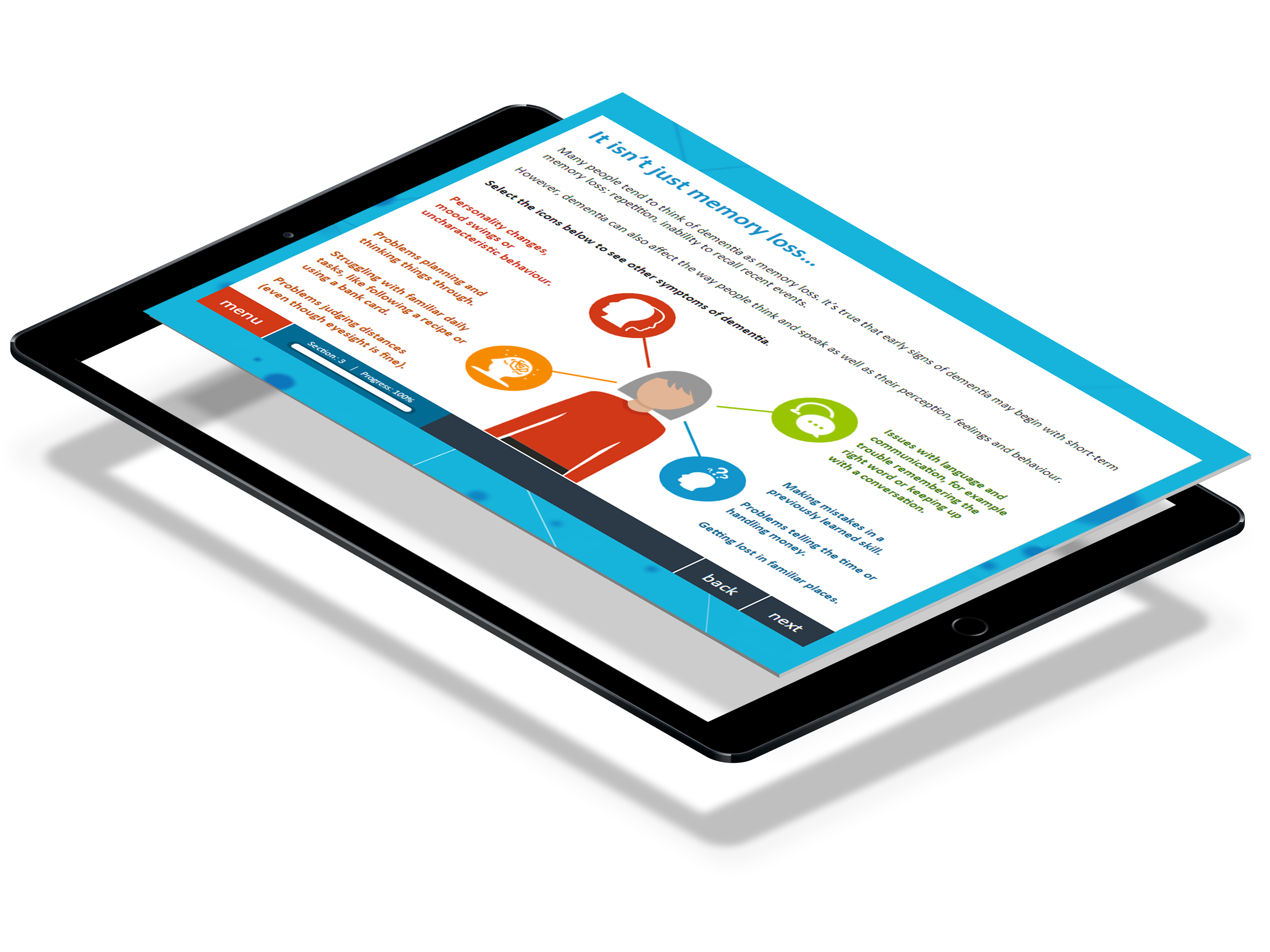

“Living with a memory problem is sometimes like living in the fog and sometimes like living in the sunshine. We have good days and bad days.”
Alzheimer’s Society online community Talking Point, 2004
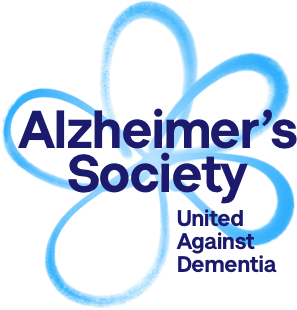

Raising awareness through digital learning
Over the years, Dynamic has worked with several organisations (including NHS Trusts, Care Homes and Community Services) to develop a range of training materials relating to dementia.
The resources we have developed have varied according to the needs of the organisational requirements and their target audience. In our projects, we have worked with specialists to produce a wide variety of elearning resources. These have included the use of motion graphics and presenter-style videos to show how different types of dementia impact specific areas of the brain.
Subject matter experts (SMEs) in our client organisations have used these resources to facilitate training with colleagues. And that’s in face-to-face sessions as well as online delivery. We’ve deployed awareness level interactive content to organisations and the general public via LMSs, intranets and websites.
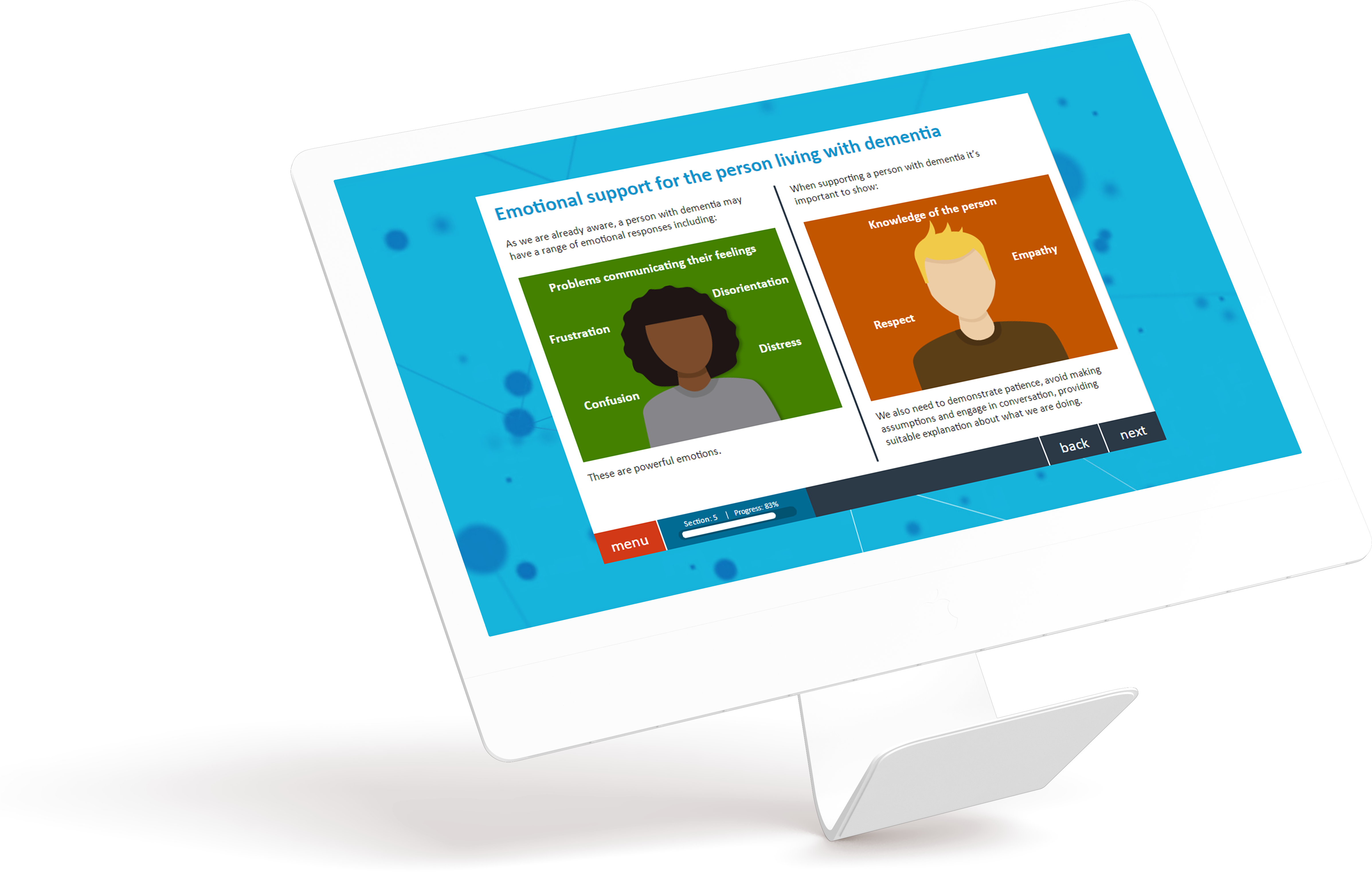
Off-the-shelf digital learning,
on-point subject matters
We have also created bespoke elearning projects to meet specific criteria to map to. For example, dementia education frameworks and pathways and have included both formative and summative assessment.
Our off-the-shelf dementia elearning module forms part of an ever-expanding library of courses that we develop in-house.
In most of our projects, we have collaborated with client organisation SMEs as well as people living with dementia and their carers. During the creation of such projects, we have interviewed and filmed people talking about their personal experiences of dementia. They’ve shared stories of the impact dementia has had on them and their loved ones. So whilst we may talk about raising awareness through digital learning, it’s much of the offline, face-to-face activity that really counts.
There has been a recurring message from the people living with dementia. The message is that it’s important to continue to recognise that people with dementia are individuals and that the disease will have affected them in different ways. But always, they are still the same person.

Treat everyone as an individual
Everyone’s experience of dementia is unique. And in order to support an individual, we need to understand how their own dementia affects them and those they come into contact with.
“…don’t forget the ME in DeMEntia. Continue to see the person. Whether it’s your mum, sister, uncle… whoever… they are still that person. However, the disease takes its toll whether it’s aggression… or moodiness or depression. Just see the person… not the dementia…”
Sandra
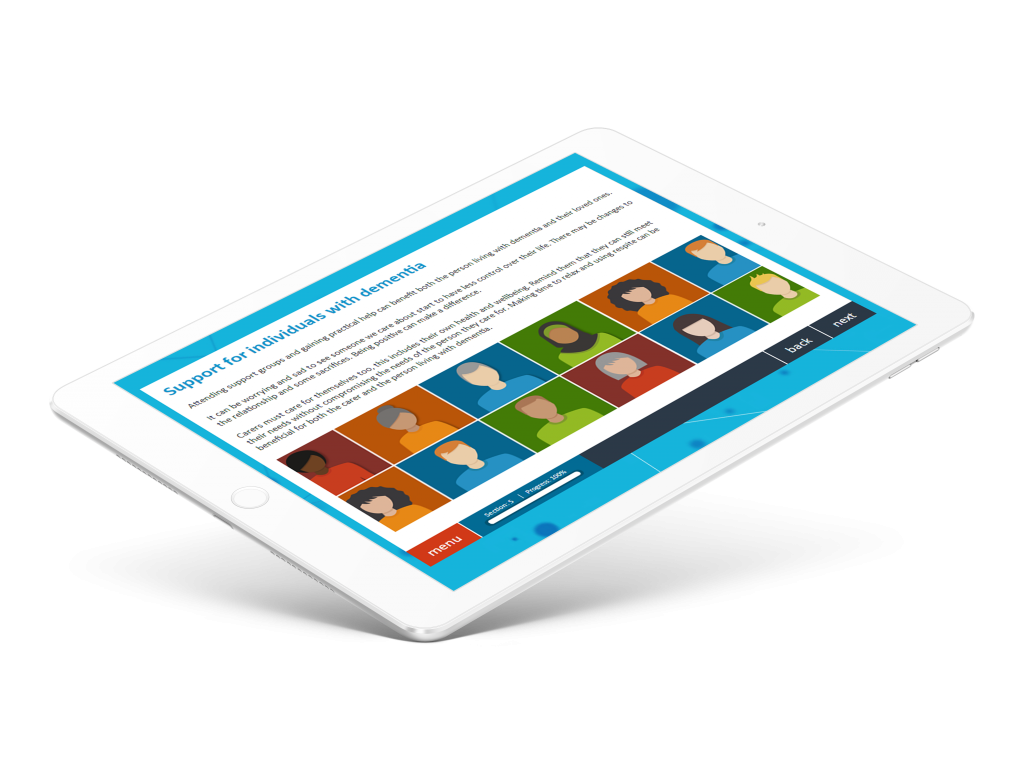
“Dementia is all about developing strategies. And I know that when I start to speak to somebody their reaction is always to be silent. Am I going to say the wrong thing? I don’t want to hurt your feelings. I take the responsibility of streamlining the conversation and I’m still fairly articulate. I inject a lot of humour…’’
Interviewing people living with dementia, carers and family members gave the team at Dynamic some invaluable insight. It meant we could produce resources to raise awareness within a range of organisations for a broad audience. And it also meant we could present real stories through interviews from those living with dementia as well as their carers.

Reducing risk and living with dementia
Evidence shows that there are things that can be done to help reduce individuals’ risk of dementia or delay young onset. These include keeping active, eating healthily and exercising your mind.
Regularly challenging yourself mentally seems to build up the brain’s ability to cope with the disease. One way to think about it is use it or lose it. Talking and communicating with other people may help to reduce the risk of dementia. Maintaining activity and social contact is also really important.
Support and familiarity help
Many people with mild-to-moderate dementia are able to stay in their own home and live well. Especially if they have adequate support. Being in familiar surroundings can help people cope better with their condition.
Wendy Mitchell was diagnosed with young-onset dementia at the age of 58.
She retired early from the NHS having worked as a non-clinical team leader for 20 years and is an author, blogger and Alzheimer’s Society Ambassador.
Wendy speaks about her diagnosis and offers powerful, funny and brave insights into living with dementia.
“There’s a beginning, a middle and so much life to be lived when someone has dementia. Not just an end.
Don’t disable people before they’ve lost their ability.”
Wendy Mitchell
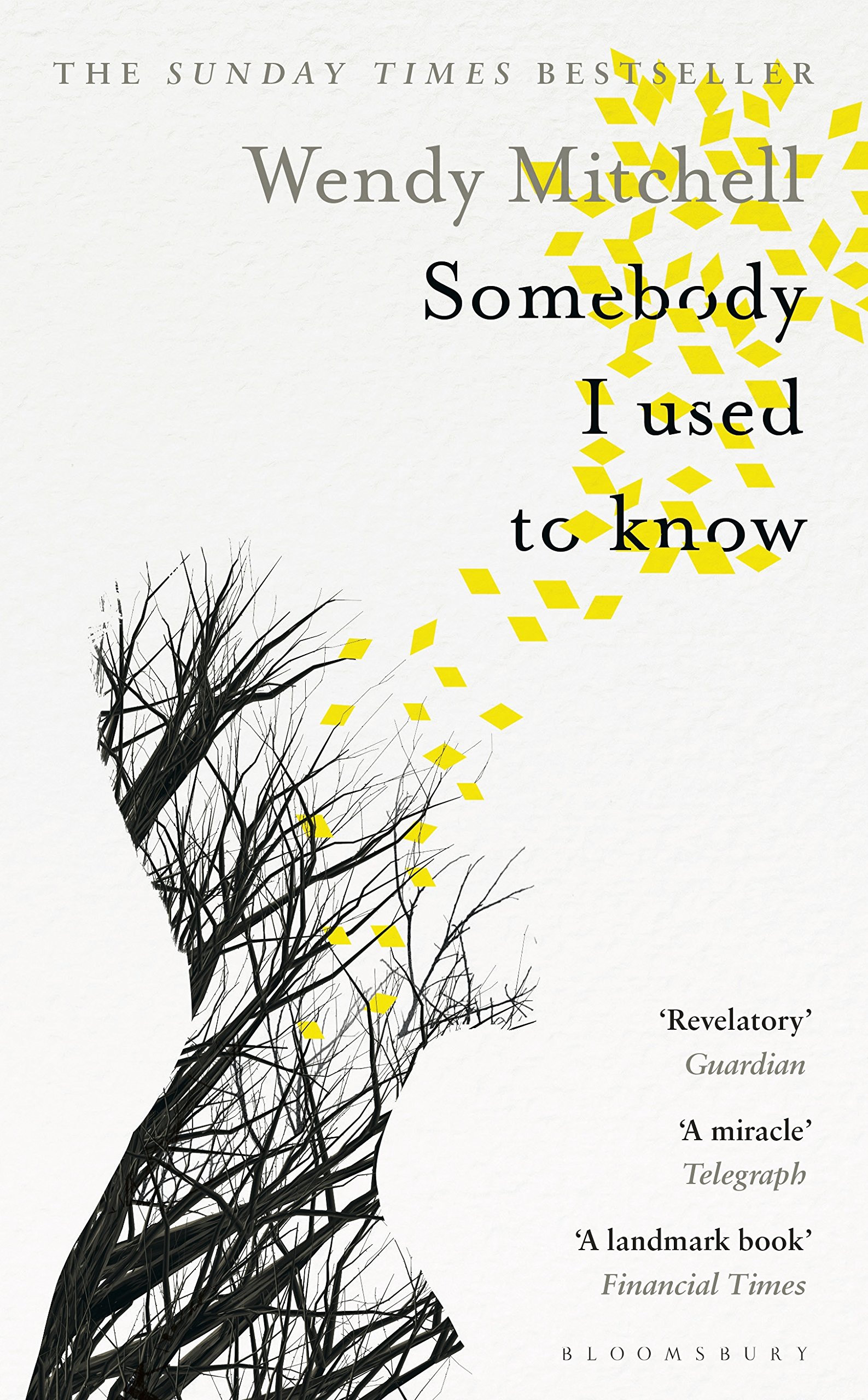

With the right help and support when they need it, many people can, and do, live well with dementia for years. Staying socially active, telling people about their dementia and keeping healthy, play a significant role in living well with dementia.
Support for people’s families can also be vital in helping people living with dementia to live well and play an active part in the community.
Simple actions can create dementia-friendly communities where people living with the condition can continue to socialise with others or go to the local shop. They can also help people travel on public transport and visit others, and take part in local activities for as long as possible.
For more information about raising dementia awareness, or to view our digital learning content, get in touch today.





